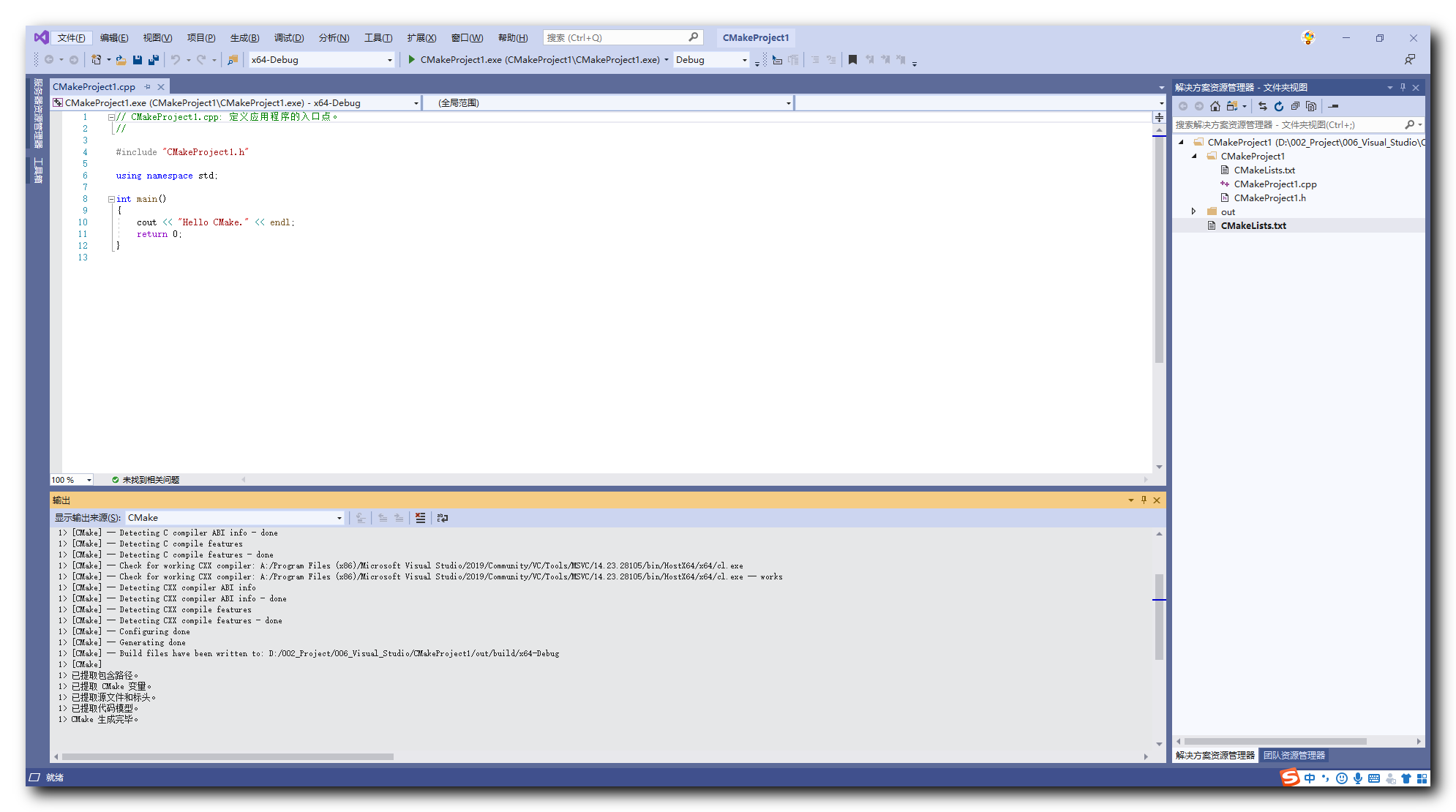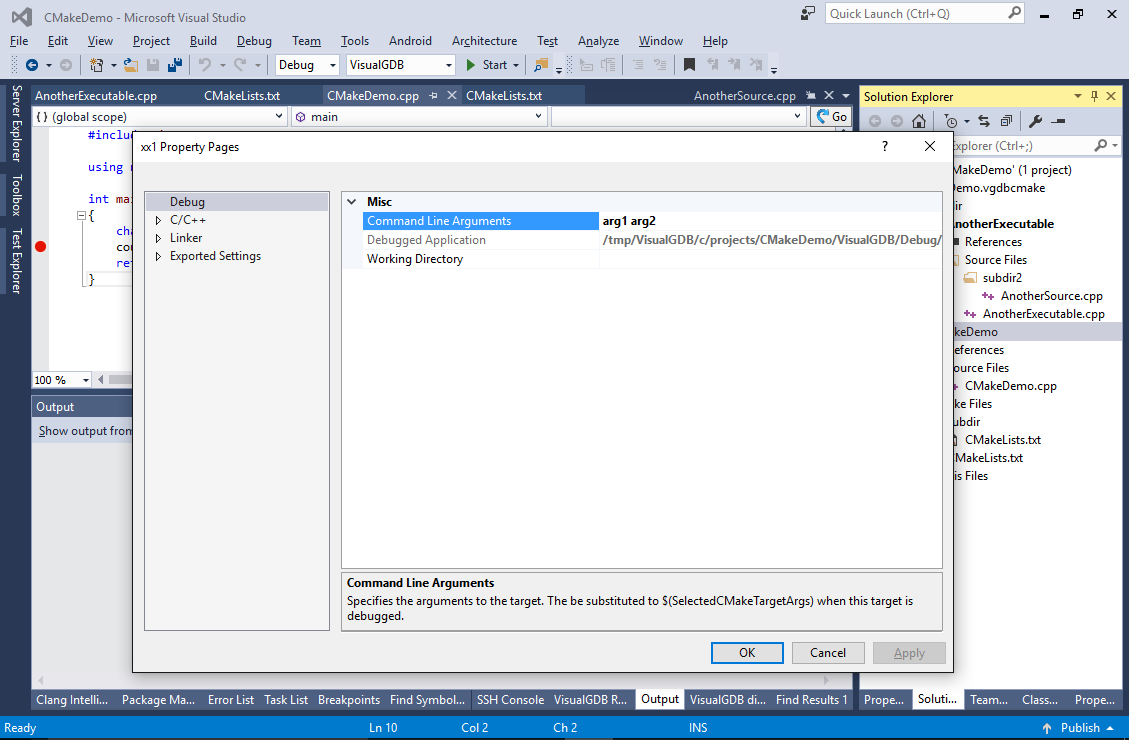

But for this tutorial, Executable will do. Note: If you had wanted to create a basic source and header file, you would have selected Library instead. Next, select Executable as the project type to create a basic source file ( main.cpp) that includes a basic main() function. This will be written to CMakeLists.txt and a few initial source files. Open the Command Palette ( ⇧⌘P (Windows, Linux Ctrl+Shift+P)) and run the CMake: Quick Start command:Įnter a project name. The CMake Tools extension can create the files for a basic CMake project for you.
#Cmake visual studio code
command opens VS Code in the current working folder, which becomes your "workspace". From the Terminal window, create an empty folder called cmakeQuickStart, navigate into it, and open VS Code in that folder by entering the following commands: mkdir cmakeQuickStart cd cmakeQuickStart code.

Otherwise, create a folder for a new project. If you have an existing CMake project that already has a CMakeLists.txt file in the root directory, you can skip to Select a kit to configure your existing project.
#Cmake visual studio install
Next, install the GNU compiler, make, and the GDB debugger with this command: sudo apt-get install build-essential gdb Create a CMake project An out-of-date Linux distribution can interfere with getting the latest packages.
#Cmake visual studio update
If GCC isn't installed, run the following command from the Terminal window to update the Ubuntu package lists. To see if GCC is already installed on your system, open a Terminal window and enter the following command: gcc -v These tools are not installed by default on Ubuntu, so you need to install them. Ensure that development tools are installedĪlthough you'll use VS Code to edit your source code, you'll compile and debug the source code using the compiler, debugger, and build tools (such as make) installed on your system.įor this tutorial on Ubuntu, we'll use the GCC compiler, GDB to debug, and make to build the project. To install CMake, or to get a later version if you don't at least have version 3.15, see the instructions for your platform at Kitware APT Repository. Open a Terminal window and enter the following command: cmake -version See if CMake is already installed on your system. For best results, use CMake version 3.15 or greater. The VS Code CMake Tools extension does its work by using CMake installed on your system. You'll also need to install CMake, a compiler, a debugger, and build tools. Install the CMake Tools extension by searching for 'CMake tools' in the Extensions view ( ⇧⌘X (Windows, Linux Ctrl+Shift+X)). Install the C/C++ extension by searching for 'c++' in the Extensions view ( ⇧⌘X (Windows, Linux Ctrl+Shift+X)).ĬMake Tools extension for VS Code. To complete this tutorial on Ubuntu, install the following:Ĭ++ extension for VS Code. Also, for more information about CMake Tools in general, see CMake Tools for Visual Studio Code documentation Prerequisites If you have any trouble, please file an issue for this tutorial in the VS Code documentation repository. Aside from installing CMake, your compiler, debugger, and build tools, the steps in this tutorial apply generally to how you'd use CMake on other platforms, like Windows.

In this tutorial, you'll use the CMake Tools extension for Visual Studio Code to configure, build, and debug a simple C++ CMake project on Linux. The CMake Tools extension integrates Visual Studio Code and CMake to make it easy to configure, build, and debug your C++ project. Configure IntelliSense for cross-compilingĮdit Get started with CMake Tools on LinuxĬMake is an open-source, cross-platform tool that uses compiler and platform independent configuration files to generate native build tool files specific to your compiler and platform.Target_compile_features(myproject INTERFACE cxx_auto_typeĪuto i = 0 //it is clear that we want an int hereĪuto d = 1.

Target_compile_features(myproject INTERFACE cxx_auto_type)


 0 kommentar(er)
0 kommentar(er)
